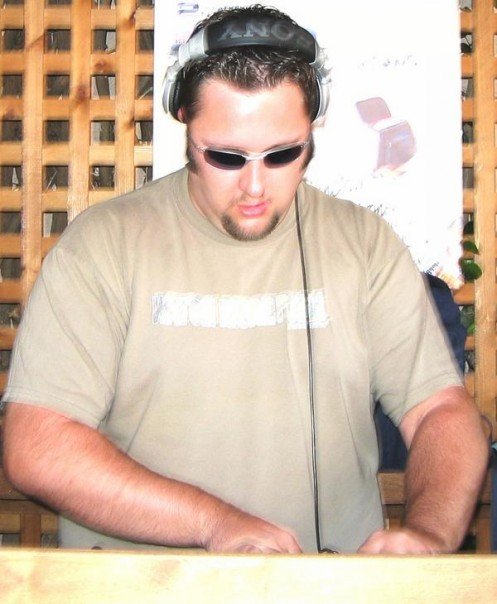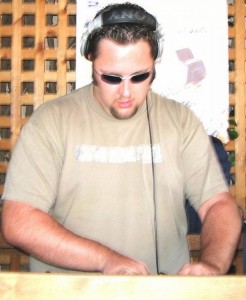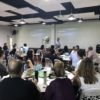
 Among most of my friends it is common knowledge that from the ages of about 19 to 35 I DJ’d at umpteen bars and clubs across Europe and got to play at some enviable clubs and locations. From Ministry of Sound in London on their radio station and in their club to Ibiza, Edinburgh and beyond. It was a great experience and one that, even though I was still teaching Monday to Friday, brought me many brilliant learning experiences. It helped shape me in to the person I am now.
Among most of my friends it is common knowledge that from the ages of about 19 to 35 I DJ’d at umpteen bars and clubs across Europe and got to play at some enviable clubs and locations. From Ministry of Sound in London on their radio station and in their club to Ibiza, Edinburgh and beyond. It was a great experience and one that, even though I was still teaching Monday to Friday, brought me many brilliant learning experiences. It helped shape me in to the person I am now.
I’ve given it up now so I can spend more time with the family but when I was talking recently with some colleagues about my past as a DJ, we started discussing how I planned my sets before going off to a gig. I regaled at how I never really planned them, but had my bag full of vinyl (or more recently CDs for use on CDJs) with songs that I liked and might end up playing, but that I never planned my sets – I just read the crowd, listened to the previous DJs, got a feel for what music people were enjoying and explored those types of tracks. Certainly though, I knew of many DJs who would knew exactly what they were going to play, exactly when they were going to mix it in and exactly what BPM the tracks needed to be at in order to fit all the tunes in they wanted in to their sets. Certainly, if you’re one of the very talented and amazing scratch DJ’s that are out there, who have to plan their sets to the nth degree, that sort of thing is really important:
Reflecting after the conversations, I started relating it to my teaching – certainly, my classroom are an audience and as a teacher, whilst I plan my lessons and I have an endgame, i.e. my outcomes, I do read the audience and go with the flow. Like some of the DJs I knew, who would plan their sets religiously, aren’t there teachers who teach like this too? Surely, if teachers do that, they’re missing the point? I know it’s helpful (especially when first starting out) to have clear ideas about the language you’ll use, the questioning techniques you want to employ, so forth and so on, but as you progress in your teaching career, don’t you want to be able to stop and explore a point that might come up? To be able to change direction if required? After all, no two lessons are ever the same. I have a Year 9 ICT class on a Tuesday morning and I have a repeat of that lesson on a Friday afternoon with a different Year 9 class. Here, the timings, the audience and other variables are completely different, so I need to be mindful of all these things and adjust my ‘set’ accordingly, even though I still want the same successful outcomes. It’s just that the songs I play are different.
The same is true of other careers too – chefs for example taste as they’re going along, they drop in a pinch of salt after tasting or a grind of pepper, just to get the perfect blend in the meal they’re cooking. Teaching’s the same, you just have to test and read your audience and adjust your style to suit them so they learn the most and enjoy the best teaching you can provide.















For me, that’s what real AFL is. It has become a more gimmicky box on a lesson plan in some places, but the essence is reading the crowd and tweaking for maximum effect.
I’ve never DJed to massive crowds, but my covers band regularly plays The Dog and Doris to four locals and a passing cat. The premise is the same, see what’s working and adjust the set on the fly for maximum drunken singing/dancing/air guitar. In a lesson, do the same except the focus is learning (and maybe air guitar if it’s going particularly well). It’s also taught me that learners need periods of high & low intensity in a lesson (Ian Gilbert calls it Fartlek-ing after the interval training method) Just like a crowd need tubes to build them up and mellow them out. Keep working the room Mark.
Thanks Andy! It’s definitely a case of reading your audience. The bonus of doing it in the classroom is that you know your audience that much better & have oodles of data on them!
I find I can always relate things like this to Software Development Methodologies.
The Waterfall method (pre-planned and fixed) never works and I think ~80% of projects that ever used it failed.
Iterative methods are dynamic and allow adaptation to the many different scenarios that occur throughout any development cycle, usually problems that weren’t found by the designers in early planning stages. Agile method is quite an interesting one and here is a TED talk where this guy used it in his family home.
[ted id=1675]
Agreed. Great thinking. You might like this parallel of agile pedagogy from Miles Berry. Compelling. http://youtu.be/uT8obLrhMp0
I find I can always relate things like this to Software Development Methodologies.
The Waterfall method (pre-planned and fixed) never works and I think ~80% of projects that ever used it failed.
Iterative methods are dynamic and allow adaptation to the many different scenarios that occur throughout any development cycle, usually problems that weren’t found by the designers in early planning stages. Agile method is quite an interesting one and here is a TED talk where this guy used it in his family home.
Bruce Feiler: Agile programming — for your family